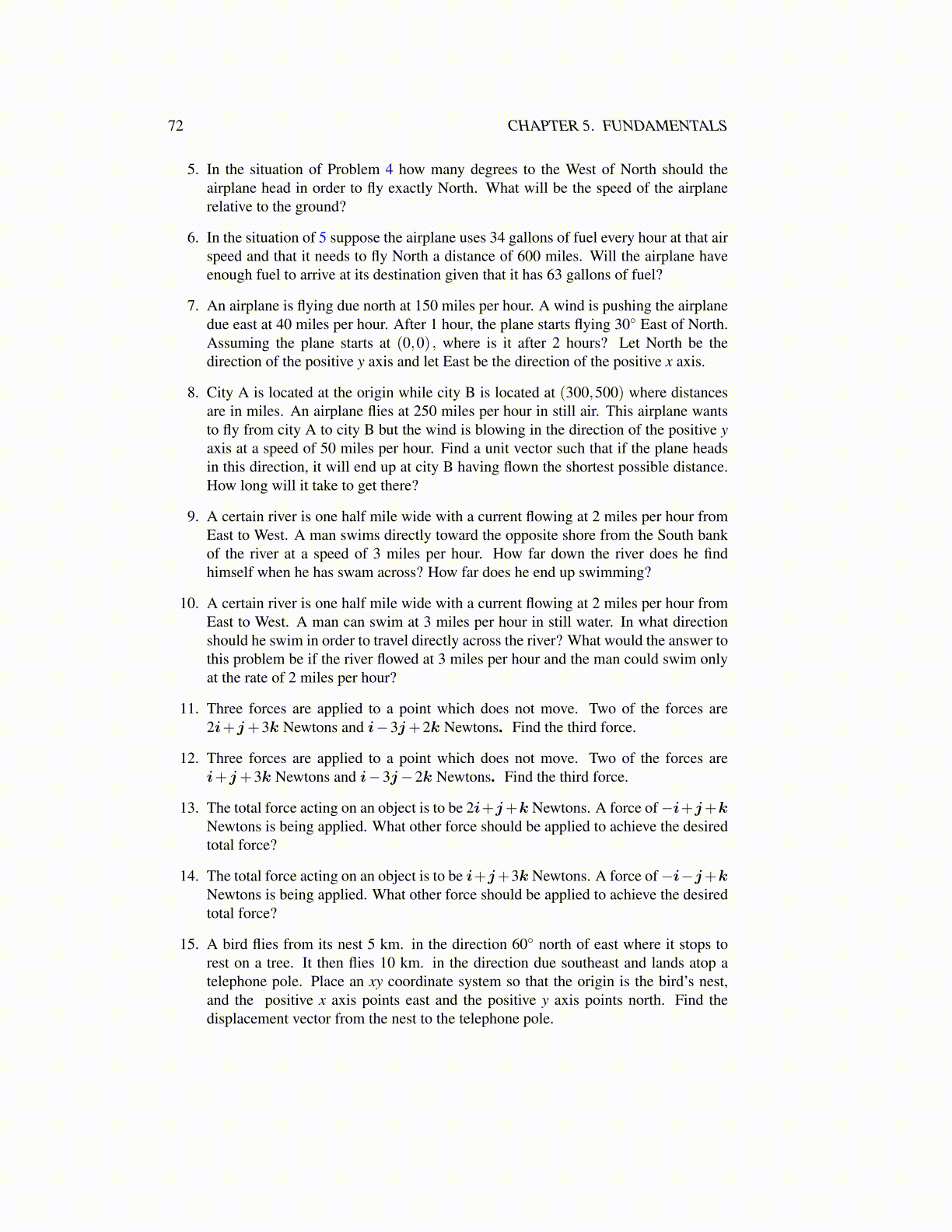
72 CHAPTER 5. FUNDAMENTALS
5. In the situation of Problem 4 how many degrees to the West of North should theairplane head in order to fly exactly North. What will be the speed of the airplanerelative to the ground?
6. In the situation of 5 suppose the airplane uses 34 gallons of fuel every hour at that airspeed and that it needs to fly North a distance of 600 miles. Will the airplane haveenough fuel to arrive at its destination given that it has 63 gallons of fuel?
7. An airplane is flying due north at 150 miles per hour. A wind is pushing the airplanedue east at 40 miles per hour. After 1 hour, the plane starts flying 30◦ East of North.Assuming the plane starts at (0,0) , where is it after 2 hours? Let North be thedirection of the positive y axis and let East be the direction of the positive x axis.
8. City A is located at the origin while city B is located at (300,500) where distancesare in miles. An airplane flies at 250 miles per hour in still air. This airplane wantsto fly from city A to city B but the wind is blowing in the direction of the positive yaxis at a speed of 50 miles per hour. Find a unit vector such that if the plane headsin this direction, it will end up at city B having flown the shortest possible distance.How long will it take to get there?
9. A certain river is one half mile wide with a current flowing at 2 miles per hour fromEast to West. A man swims directly toward the opposite shore from the South bankof the river at a speed of 3 miles per hour. How far down the river does he findhimself when he has swam across? How far does he end up swimming?
10. A certain river is one half mile wide with a current flowing at 2 miles per hour fromEast to West. A man can swim at 3 miles per hour in still water. In what directionshould he swim in order to travel directly across the river? What would the answer tothis problem be if the river flowed at 3 miles per hour and the man could swim onlyat the rate of 2 miles per hour?
11. Three forces are applied to a point which does not move. Two of the forces are2i+j+3k Newtons and i−3j+2k Newtons. Find the third force.
12. Three forces are applied to a point which does not move. Two of the forces arei+j+3k Newtons and i−3j−2k Newtons. Find the third force.
13. The total force acting on an object is to be 2i+j+k Newtons. A force of−i+j+kNewtons is being applied. What other force should be applied to achieve the desiredtotal force?
14. The total force acting on an object is to be i+j+3k Newtons. A force of−i−j+kNewtons is being applied. What other force should be applied to achieve the desiredtotal force?
15. A bird flies from its nest 5 km. in the direction 60◦ north of east where it stops torest on a tree. It then flies 10 km. in the direction due southeast and lands atop atelephone pole. Place an xy coordinate system so that the origin is the bird’s nest,and the positive x axis points east and the positive y axis points north. Find thedisplacement vector from the nest to the telephone pole.